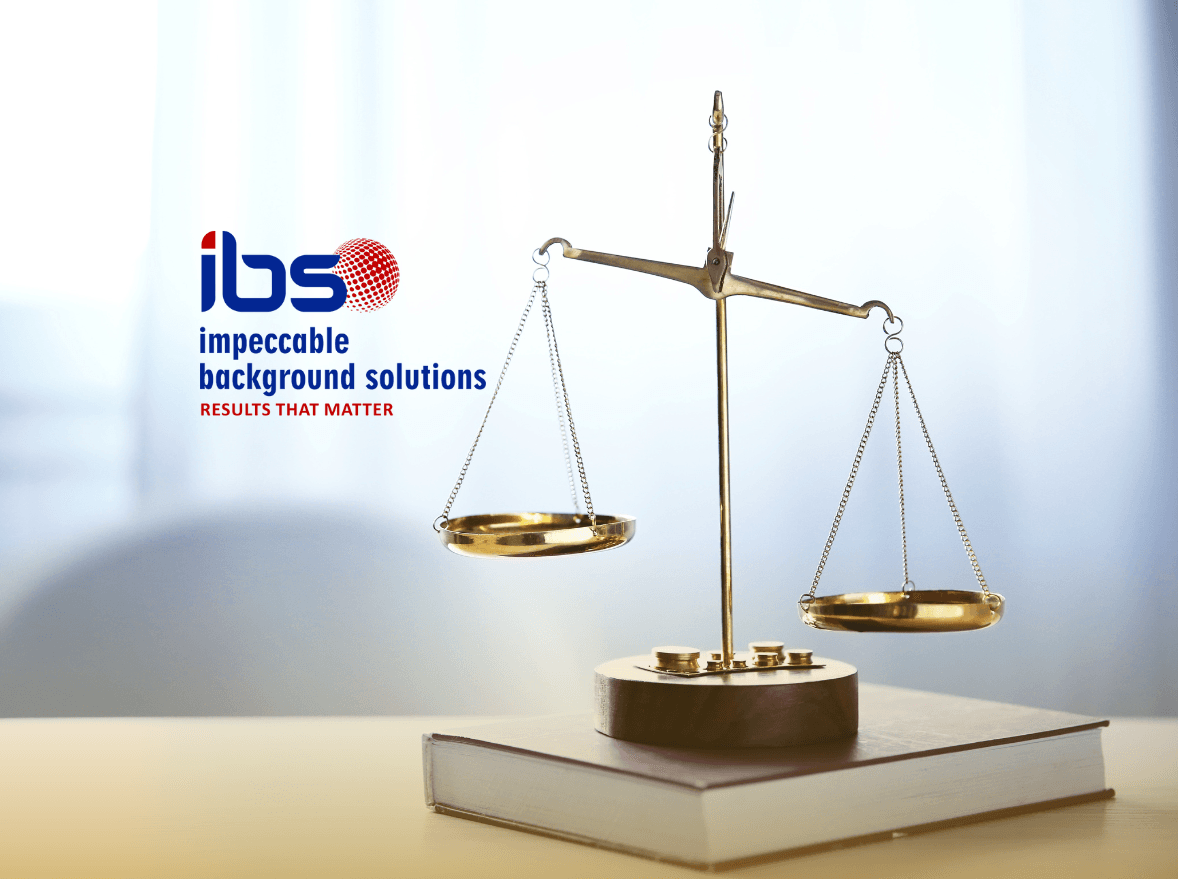Are you aware of the meticulous process that goes behind conducting a background check? Have you ever wondered what safeguards are in place to ensure that your personal information is protected during this process? In today’s digital age, where information travels at lightning speed, it is crucial to prioritize the security and confidentiality of individuals’ data.
This is where the Fair Credit Reporting Act (FCRA) compliance steps in, playing a vital role in safeguarding background checks in Georgia. In this comprehensive blog post, we will delve deep into the world of FCRA compliance, unraveling its significance and impact on background checks.
Whether you’re an employer looking to hire a new employee or a tenant screening potential renters, understanding FCRA compliance in Georgia can save you from legal troubles and protect your reputation. So, without further ado, let’s explore the key aspects of FCRA compliance and how it safeguards the integrity of background checks in the Peach State.
Data Security Matters: Why FCRA Compliance is Essential for Background Checks in Georgia
Understanding FCRA Compliance: A Brief Overview

Before we dive into the specifics of FCRA compliance, let’s take a moment to understand what it entails. The Fair Credit Reporting Act (FCRA) is a federal law that aims to ensure accuracy, fairness, and privacy in the collection and use of consumer information. It regulates the activities of consumer reporting agencies (CRAs) that gather and provide consumer information for background checks.
FCRA compliance sets forth guidelines and standards that CRAs must adhere to when conducting background checks. These guidelines include obtaining consent from individuals before conducting a background check, ensuring the accuracy of the information provided, and protecting the privacy of individuals’ personal data.
In essence, FCRA compliance acts as a safeguard against any misuse or mishandling of personal data during the background check process. It ensures that individuals’ rights are protected and that their information is handled with utmost care.
The Significance of FCRA Compliance in Background Checks

Background checks play a crucial role in various aspects of life, from employment screening to tenant verification. However, without proper regulations in place, these checks can potentially infringe upon individuals’ privacy rights.
This is where FCRA compliance comes into play. By enforcing strict guidelines on how background checks should be conducted, FCRA compliance ensures that individuals’ rights are respected throughout the process. It promotes transparency and accountability among CRAs and helps maintain the integrity of background checks.
For employers conducting background checks on potential employees in Georgia, adhering to FCRA compliance is not just a legal requirement but also a way to protect their reputation. By following the guidelines set forth by FCRA compliance, employers can ensure that they are making informed hiring decisions based on accurate and reliable information.
The Role of Fair Credit Reporting Act in Protecting Consumer Information

One of the primary objectives of FCRA compliance is to protect consumer information. In today’s digital age, where data breaches and identity theft are prevalent, safeguarding personal data has become more critical than ever.
FCRA compliance ensures that CRAs handle consumer information with utmost care and take necessary measures to protect it from unauthorized access or disclosure. It requires CRAs to have strict security protocols in place to safeguard sensitive data, such as social security numbers, financial records, and criminal history.
By enforcing these measures, FCRA compliance helps individuals maintain control over their personal information and reduces the risk of identity theft or other forms of misuse.
Guidelines and Standards Set by FCRA Compliance

When it comes to FCRA compliance, there are several guidelines and standards that need to be followed. These guidelines aim to ensure that background checks are conducted in a fair and consistent manner. Not only that, but these also help with protecting the rights and privacy of individuals. In the state of Georgia, these guidelines are particularly important in safeguarding the background check process.
One of the key aspects of FCRA compliance is obtaining proper authorization from the individual before conducting a background check. This authorization must be in writing and clearly state the purpose of the check. It is essential to obtain this authorization before any information is gathered or shared.
Another important guideline is the requirement to provide a clear and accurate disclosure to the individual being screened. This disclosure should outline the nature and scope of the background check, and any potential adverse actions that may result from the findings. It is crucial to provide this disclosure in a manner that is easily understandable to the individual.
In addition to obtaining authorization and providing a disclosure, FCRA compliance also mandates that individuals have the opportunity to dispute any inaccurate or incomplete information found during a background check. This gives individuals the chance to correct any errors and ensure that their records are accurate.
Furthermore, FCRA compliance requires that background screening companies adhere to certain standards when it comes to the accuracy and completeness of the information they provide. This includes using reliable sources for gathering information and conducting thorough checks to ensure the accuracy of the findings.
Conducting Background Checks within Legal Boundaries in Georgia

In Georgia, FCRA compliance is particularly significant for businesses conducting background checks on potential employees or tenants. Failure to comply with FCRA regulations can result in legal troubles and damage a company’s reputation.
When conducting background checks in Georgia, employers must ensure that they have obtained the necessary consent from individuals and are using reliable and accurate sources of information. They must also provide individuals with a copy of their rights under FCRA and give them an opportunity to dispute any inaccuracies in their background check report.
By following these guidelines, employers can conduct background checks within legal boundaries and make informed decisions while respecting individuals’ privacy rights.
The Impact of FCRA Compliance on Employers in Georgia

FCRA compliance, which stands for Fair Credit Reporting Act, has a significant impact on employers in Georgia. It is essential for employers to understand and adhere to FCRA regulations to safeguard their background check processes. Failure to comply with FCRA requirements can lead to legal consequences, reputational damage, and financial penalties.
Under FCRA, employers are required to follow specific guidelines when conducting background checks on potential employees. These guidelines include obtaining written consent from the job applicant, providing a clear and conspicuous disclosure regarding the background check process, and notifying the applicant if adverse action is taken based on the background check results.
By adhering to FCRA compliance, employers in Georgia can ensure that they are making informed hiring decisions while protecting the privacy rights of job applicants. FCRA compliance helps employers maintain a fair and unbiased hiring process, promoting equal opportunities for all applicants.
One of the key benefits of FCRA compliance for employers in Georgia is the mitigation of legal risks. Non-compliance with FCRA regulations can result in lawsuits and costly settlements. By following FCRA guidelines, employers can minimize the risk of litigation and protect themselves from potential legal disputes.
Moreover, FCRA compliance helps employers maintain a positive reputation. In today’s digital age, news spreads quickly, and any violation of applicants’ privacy rights can damage an employer’s reputation. By prioritizing FCRA compliance, employers demonstrate their commitment to ethical hiring practices and gain the trust of potential employees.
Financial penalties can also be incurred if employers fail to comply with FCRA regulations. Violations can result in fines imposed by regulatory authorities, which can be expensive for businesses, especially small and medium-sized enterprises. By investing in FCRA compliance, employers can avoid these financial burdens and allocate resources more effectively.
Avoiding Legal Troubles: Importance of FCRA Compliance for Individuals

FCRA compliance is not just essential for employers but also for individuals undergoing background checks. By understanding their rights under FCRA, individuals can protect themselves from potential misuse or mishandling of their personal data.
If an individual believes that the information provided in their background check report is inaccurate or incomplete, they have the right to dispute it. FCRA compliance ensures that CRAs investigate these disputes promptly and take necessary actions to correct any inaccuracies.
By being aware of their rights under FCRA, individuals can avoid legal troubles and protect their reputation when it comes to employment opportunities or other situations requiring a background check.
Benefits of FCRA Compliance: Protecting Rights and Safeguarding Personal Data

FCRA compliance is crucial for protecting individuals’ rights and safeguarding personal data. By adhering to the Fair Credit Reporting Act (FCRA), organizations can ensure the accuracy and privacy of background checks in Georgia and beyond.
One of the key benefits of FCRA compliance is the protection of individuals’ rights. The FCRA sets clear guidelines on the collection, use, and disclosure of consumer information. This helps prevent unauthorized access to sensitive personal data, ensuring that individuals’ privacy is respected.
FCRA compliance also plays a vital role in safeguarding personal data. With the increasing prevalence of data breaches and identity theft, it is essential for organizations to handle consumer information with care. By implementing FCRA compliance measures, such as secure data storage and limited access to sensitive information, organizations can reduce the risk of data breaches and protect individuals’ personal data from falling into the wrong hands.
Furthermore, FCRA compliance promotes accuracy in background checks. The FCRA requires that consumer reporting agencies (CRAs) take reasonable steps to ensure the accuracy of the information they provide. By conducting thorough and reliable background checks, organizations can make informed decisions while hiring employees or evaluating potential business partners.
Another advantage of FCRA compliance is the establishment of trust between organizations and individuals. When individuals know that their personal information is being handled in accordance with FCRA guidelines, they are more likely to trust the organizations with which they interact. This trust can lead to stronger relationships, customer loyalty, and enhanced reputation for organizations that prioritize FCRA compliance.
Conclusion: The Vital Role of FCRA Compliance in Background Checks
In conclusion, FCRA compliance plays a vital role in safeguarding background checks in Georgia. Whether you’re an employer conducting these checks or an individual undergoing one, understanding the significance of FCRA compliance is crucial.
FCRA compliance ensures that background checks are conducted within legal boundaries, protecting individuals’ privacy rights and maintaining the integrity of the process. It sets forth guidelines and standards that CRAs must follow to ensure accuracy, fairness, and confidentiality.
By prioritizing FCRA compliance, businesses can make informed hiring decisions while protecting their reputation. Individuals can also protect themselves from potential misuse or mishandling of their personal data by being aware of their rights under FCRA.
In a world where information is readily available at our fingertips, it is essential to prioritize the security and confidentiality of individuals’ data. By unraveling the intricacies of FCRA compliance, we can create a safer environment for background checks in Georgia.
As we wrap up our discussion about following rules for background checks in Georgia, it’s clear that being careful and compliant is crucial for both employers and individuals.
At Impeccable Background Solutions, we’re here to make sure your background screening process is accurate and follows all the necessary regulations with our extensive background check services. Keep things straightforward and secure by choosing Impeccable Background Solutions.
Reach out to us at 404-796-8419 or send an email to info@impeccablebgs.com. Trust us to be your reliable partner in background screening solutions. Choose Impeccable Background Solutions for a hassle-free and compliant experience.





